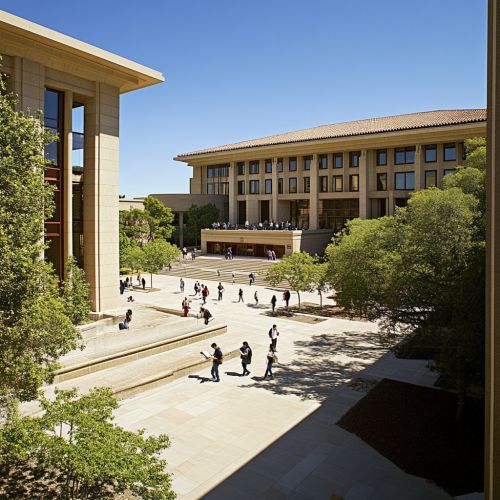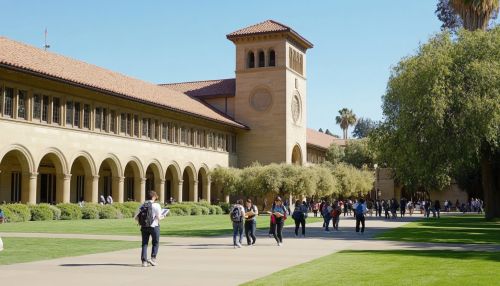Stanford Law School
History
Stanford Law School, located in Stanford, California, is one of the most prestigious law schools in the United States. Established in 1893, it has a rich history of academic excellence and innovation in legal education. The school was founded by former U.S. Senator Leland Stanford and his wife, Jane Stanford, as part of their vision for Stanford University. Initially, the law school was a small department within the university, but it quickly grew in size and reputation.
In the early 20th century, Stanford Law School began to establish itself as a leader in legal education. Under the deanship of Frederick G. W. Thwaites, the school expanded its curriculum and faculty, attracting prominent legal scholars and practitioners. The school became known for its rigorous academic standards and its emphasis on interdisciplinary studies, integrating law with other fields such as economics, business, and technology.
Academic Programs
Stanford Law School offers a variety of academic programs designed to prepare students for diverse legal careers. The primary degree offered is the J.D., a three-year program that provides a comprehensive legal education. The curriculum includes foundational courses in constitutional law, contracts, torts, and civil procedure, as well as numerous electives that allow students to specialize in areas such as intellectual property, environmental law, and international law.
In addition to the J.D. program, Stanford Law School offers advanced degrees, including the LL.M. and the J.S.D.. These programs are designed for students who have already obtained a law degree and wish to pursue further specialization or academic research. The LL.M. program offers concentrations in corporate governance, law and technology, and international economic law, among others.
Faculty and Research
Stanford Law School is renowned for its distinguished faculty, which includes leading scholars and practitioners in various fields of law. The faculty is actively engaged in research, contributing to the development of legal theory and practice. Faculty members frequently publish in top law reviews and journals, and their work often influences legal policy and reform.
The school is home to several research centers and institutes, such as the Stanford Center on the Legal Profession, the Stanford Center for Internet and Society, and the Stanford Program in Law and Society. These centers facilitate interdisciplinary research and collaboration, addressing contemporary legal challenges and fostering innovation in legal education.
Clinical Education and Experiential Learning
Stanford Law School emphasizes experiential learning, providing students with opportunities to apply their legal knowledge in real-world settings. The school offers a robust clinical education program, allowing students to work on actual cases under the supervision of experienced attorneys. Clinics cover a wide range of practice areas, including criminal defense, environmental law, and immigration law.
In addition to clinics, students can participate in externships, where they gain practical experience by working with government agencies, non-profit organizations, and private law firms. These opportunities enable students to develop essential legal skills and build professional networks.


Student Life and Organizations
Stanford Law School fosters a vibrant and inclusive community, with numerous student organizations and activities. Students can join groups focused on specific legal interests, such as the Stanford Law Review, the Stanford Environmental Law Society, and the Stanford International Human Rights Law Association. These organizations provide platforms for students to engage with pressing legal issues, develop leadership skills, and connect with peers and professionals.
The school also hosts a variety of events, including lectures, workshops, and conferences, featuring prominent legal scholars and practitioners. These events offer students opportunities to engage with cutting-edge legal research and practice, enhancing their educational experience.
Alumni and Career Opportunities
Stanford Law School has a strong network of alumni who have achieved significant success in various legal fields. Graduates hold positions in top law firms, government agencies, non-profit organizations, and academia. The school's alumni include prominent judges, politicians, and business leaders, reflecting the diverse career paths available to its graduates.
The school's Office of Career Services provides comprehensive support to students and alumni, offering career counseling, job search resources, and networking opportunities. The school's strong reputation and extensive alumni network facilitate career advancement and professional development for its graduates.
